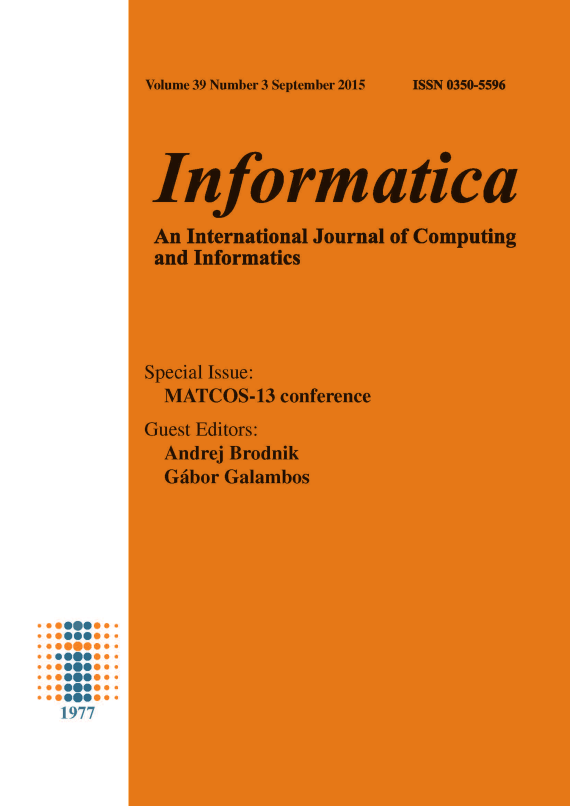Relaxations in Practical Clustering and Blockmodeling
Abstract
Network analysts try to explain the structure of complex networks by the partitioning of their nodes into groups. These groups are either required to be dense (clustering) or to contain vertices of equivalent positions (blockmodeling). However, there is a variety of definitions and quality measures to achieve the groupings. In surveys, only few mathematical connections between the various definitions are mentioned. In this paper, we show that most of the definitions used in practice can be seen as certain relaxations of four basic graph theoretical definitions. The theory holds for both clustering and blockmodeling. It can be used as the basis of a methodological analysis of different practical approaches.Downloads
How to Cite
Issue
Section
License
I assign to Informatica, An International Journal of Computing and Informatics ("Journal") the copyright in the manuscript identified above and any additional material (figures, tables, illustrations, software or other information intended for publication) submitted as part of or as a supplement to the manuscript ("Paper") in all forms and media throughout the world, in all languages, for the full term of copyright, effective when and if the article is accepted for publication. This transfer includes the right to reproduce and/or to distribute the Paper to other journals or digital libraries in electronic and online forms and systems.
I understand that I retain the rights to use the pre-prints, off-prints, accepted manuscript and published journal Paper for personal use, scholarly purposes and internal institutional use.
In certain cases, I can ask for retaining the publishing rights of the Paper. The Journal can permit or deny the request for publishing rights, to which I fully agree.
I declare that the submitted Paper is original, has been written by the stated authors and has not been published elsewhere nor is currently being considered for publication by any other journal and will not be submitted for such review while under review by this Journal. The Paper contains no material that violates proprietary rights of any other person or entity. I have obtained written permission from copyright owners for any excerpts from copyrighted works that are included and have credited the sources in my article. I have informed the co-author(s) of the terms of this publishing agreement.
Copyright © Slovenian Society Informatika









